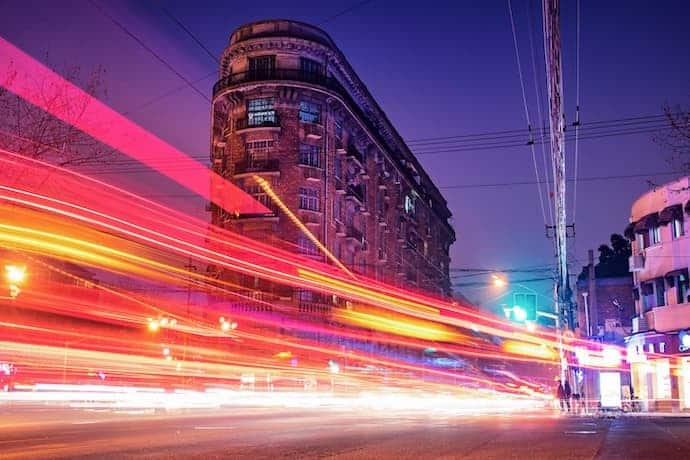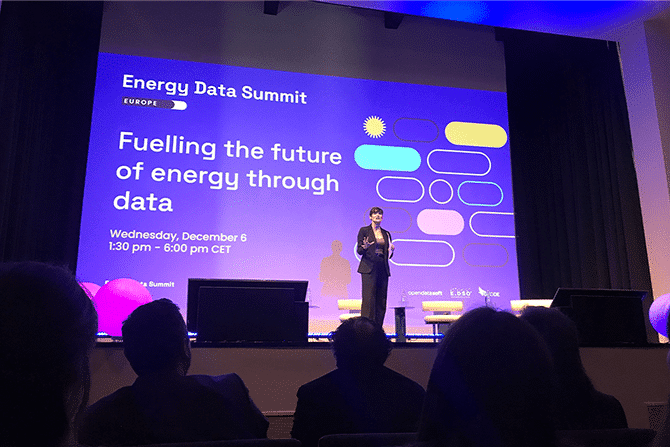How Data Is Helping Lighting Companies Develop New Digital Offers
Entire companies are also changing their business and operations models based on a better understanding and use of data. Read this article about street lighting companies to find out how data is revolutionizing their business offer and enabling them to meet the needs of the digital age.

If you have been following our blog over the last several weeks, you may have noticed that we launched a new series of interviews that explores how data changes the way we work (if you missed them, here are interviews 1 and 2). Individuals however are not the only ones impacted by the rise of data in the workforce. Entire companies are also changing their business and operations models based on a better understanding and use of data.
Read this article about street lighting companies to find out how data is revolutionizing their business offer and enabling them to meet the needs of the digital age. Enjoy the rest of this article and don’t hesitate to get in touch if you want to learn more about how we can help you harness the power of data!
Street Lighting Companies’ Core Business
The core business of street lighting companies is to provide local governments with utility poles that bring light to streets and roads. The industry went through a tremendous amount of change several years back with the rise of light-emitting diodes (LED). This new technology empowered companies to put in place street lights that use less electricity and last longer as well as to considerably increase their return on investment. It didn’t take long for actors in the field to start thinking about how they could modernize their ventures even further. This is where data comes into play!
An Industry that Aims to Stay Ahead of the Curve
The use of data represents another wave of change in the lighting industry and reflects its ambition to shape developments around smart cities. In fact, lighting companies quickly realized that providing cities with utility poles can have more than one use. As smart city initiatives are rising throughout the world, utility poles can serve as an asset and a base to host sensors. In turn, these sensors can be optimized to measure and monitor various indicators such as air quality, noise and temperature (just to mention a few!).
From Sensors to Tangible Outputs
Measuring urban indicators is particularly relevant for street lighting companies’ major customers: local governments and city operators. Using sensors to provide tangible outcomes is a number one priority. Now, not only do customers gain access to street lighting – they also benefit from valuable insights that enable them to better manage and govern their urban spaces. Sensors produce data, which in turn produces analyses that can unveil important trends across cities. City managers can gain a better understanding of the noise level across neighborhoods, the peak hours for pollution and even pedestrian movements.
But How Does Data Produce Insights?
You may now feel like you missed a step. We covered how sensors connect to lighting poles and how they can collect valuable data. What we did not address is how data is actually shared between sensors and city managers or operators. This is where a data sharing platform becomes particularly important. Such a platform constitutes an essential brick in the wall of any smart city project. It captures raw data from sensors, enhances it by crossing it with other data, and presents it in accessible tables, graphs and charts so that stakeholders can identify trends. In that sense, a data sharing platform is essential for lighting companies to be able to add a digital product to their product portfolio, which can either take the shape of an add-on or be embedded in a hardware offer. This naturally leads to the question of whether companies should buy such a platform or build it themselves.
Why choosing Opendatasoft for your digital offer is a good idea
Most lighting companies won’t have access to an internal software team or the financial resources (let alone sufficient time!) to build a robust digital offer. This explains why a number of them are turning to external vendors to provide them with the much needed data storage and visualization layer. Here are some of the benefits your company can reap from a collaboration with Opendatasoft:
- Knowledge of the subscription economy: Opendatasoft operates as a Software-as-a-Service (SaaS) company and is therefore completely immersed in the subscription economy. Lighting companies traditionally do not operate along those terms and working with a company that knows the ins and outs of subscription models can help them build their own digital offer.
- Expertise in working with local governments and smart city operators: Opendatasoft has years of experience working on data projects with hundreds of city stakeholders, may it be local governments or city operators. We have a strong understanding of the needs of street lighting companies’ customers in terms of access to data and insights.
- A strong product that is continuously being improved: Software developers constitute over 50 percent of the Opendatasoft workforce. This means that our data sharing platform is being continuously improved and has the capacity to grow with street lighting companies’ needs over the years.
- Ability to cater to different stakeholders’ data needs: Thanks to our strong data governance features, platform administrators can easily organize end users by groups. This means that, as a lighting company, you will be able to cater to your different stakeholders in a customized way, by delivering the data that is most relevant to each group.
If you are interested in finding out more about how we help companies build digital offers, follow the links to our Citilog and SFR customer stories. For more information on how we can help your lighting company develop a new data service, get in touch with us today!



